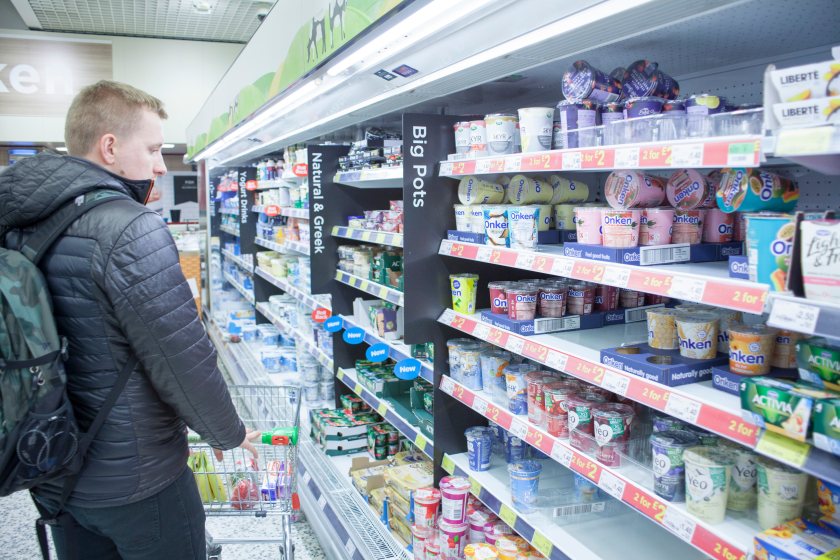Extreme weather pushing up price of beef and milk, experts say

Food price inflation is refusing to ease, and new analysis points the finger at everyday staples such as butter, beef, milk, coffee and chocolate — with extreme weather taking much of the blame.
According to the Energy and Climate Intelligence Unit (ECIU), prices for these five foods have risen by an average of 15.6% over the past year, more than four times faster than the 2.8% increase across other food and drink.
Though they make up only 11% of the average shopping basket, they account for nearly 40% of the overall rise in food bills.
The Bank of England has already warned that climate-driven weather extremes are fuelling UK inflation, complicating efforts to return rates to the two percent target.
The ECIU analysis disputes claims that wage rises or taxes are the main cause, pointing instead to harvest losses and supply shocks.
Chris Jaccarini, food and farming analyst at the ECIU, said: “At 73p, a pint of milk now costs 23p more than it did at start of the gas crisis. Milk, butter, beef, chocolate, coffee and olive oil have all been hit by extreme weather and have all become much more expensive.”
Butter and beef costs, for example, have risen after a historically hot, dry summer reduced grass growth, forcing farmers to buy feed. A bluetongue outbreak in Europe, linked to warmer conditions, has further squeezed milk and dairy supply, keeping prices high.
The UK imports around 40% of its food, leaving household staples vulnerable to global climate shocks. Cocoa prices have more than tripled in three years following crop losses in West Africa, while chocolate prices have already risen by 45% in UK shops.
Coffee is on a similar path, with droughts in Brazil and Vietnam pushing up global prices that will continue filtering through to consumers for years.
Climate impacts added an estimated £360 to the average UK household food bill in 2022–23. With forecasts suggesting that by 2050 more than half of fruit and legume imports will come from climate-vulnerable countries, the risks to family budgets are only set to grow.
Anna Taylor, executive director of the Food Foundation, said: “We are seeing the price of certain products being driven up by extreme weather.
"This is a worrying trend. Government must treat this as a food security issue, and take steps to build the resilience of farming and our supply chains.”
Jaccarini warned that central banks cannot offset these pressures: “Central banks are clear that climate change increases food prices in ways they cannot control or predict.
"There is no monetary policy lever they can pull to address this. Only by reducing our emissions to net zero and bringing balance back to our climate will we limit the impact of climate change on food prices in the future.”








